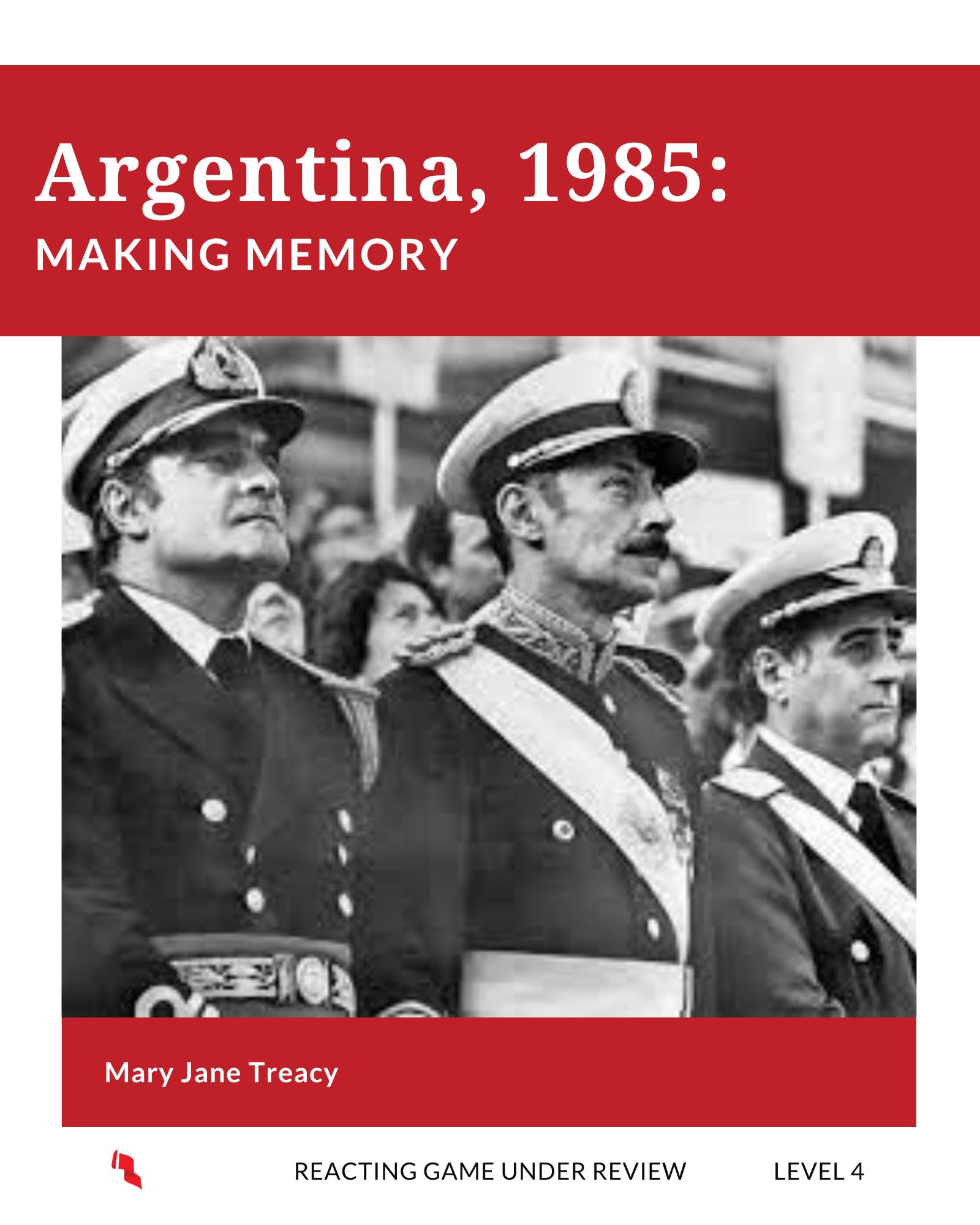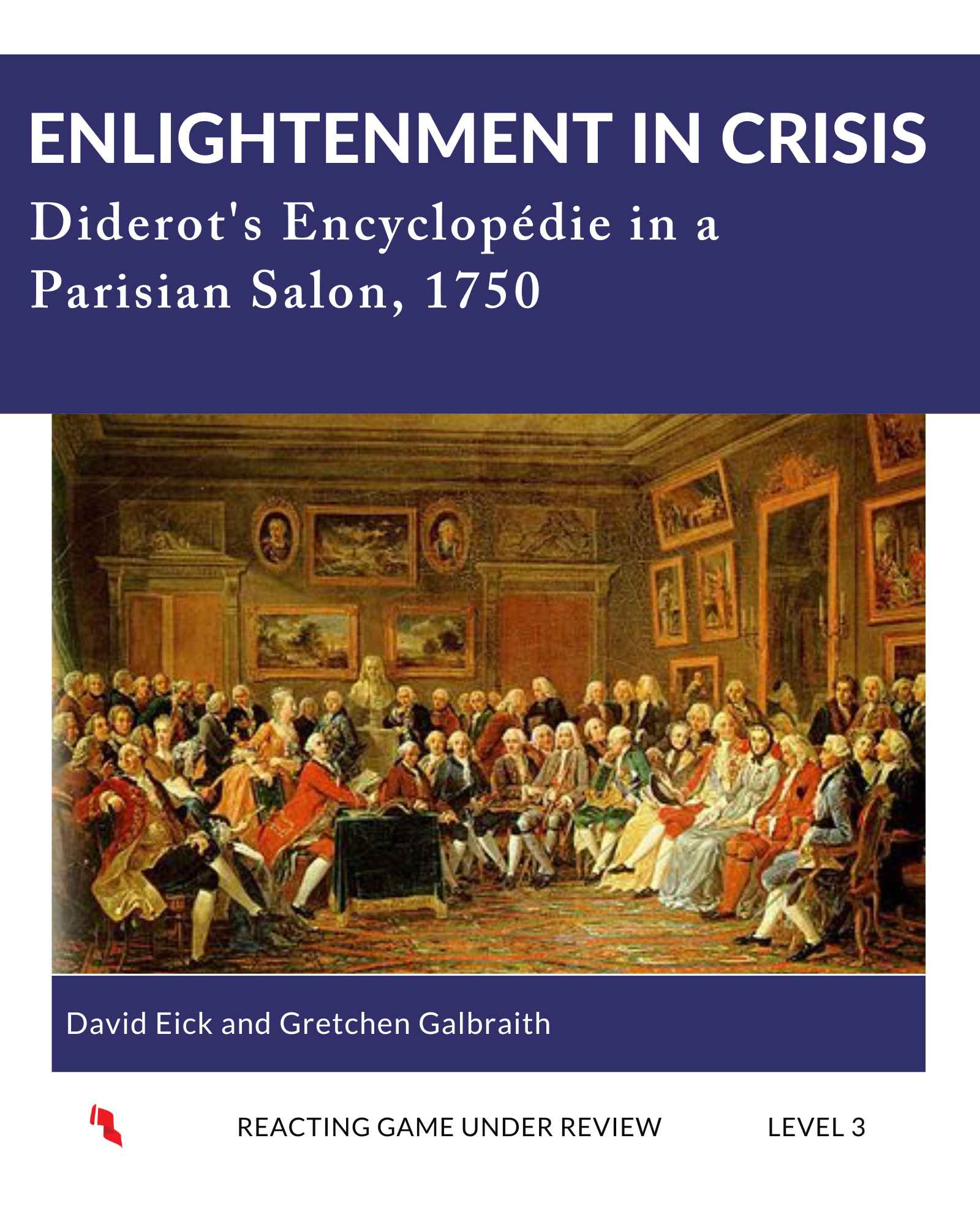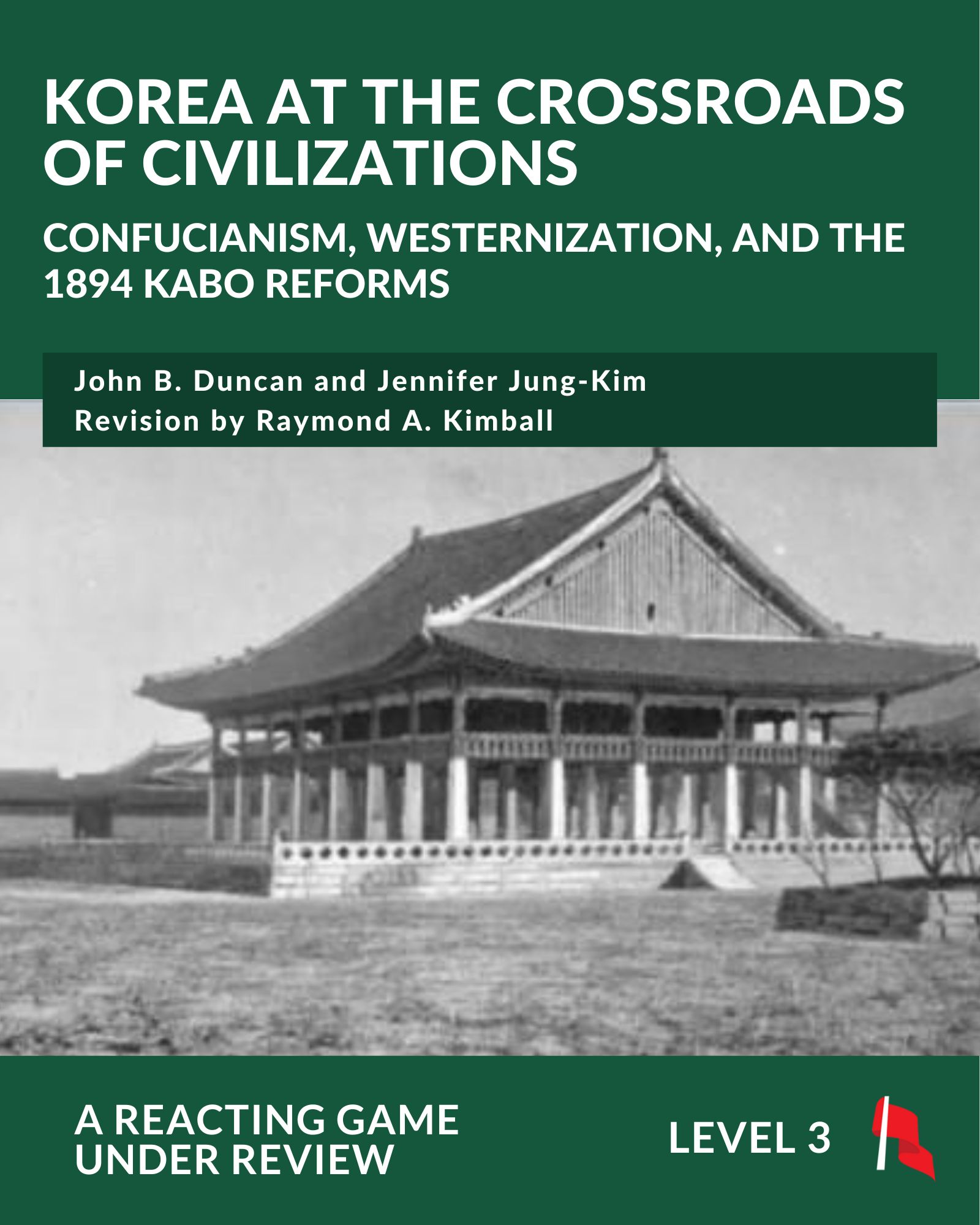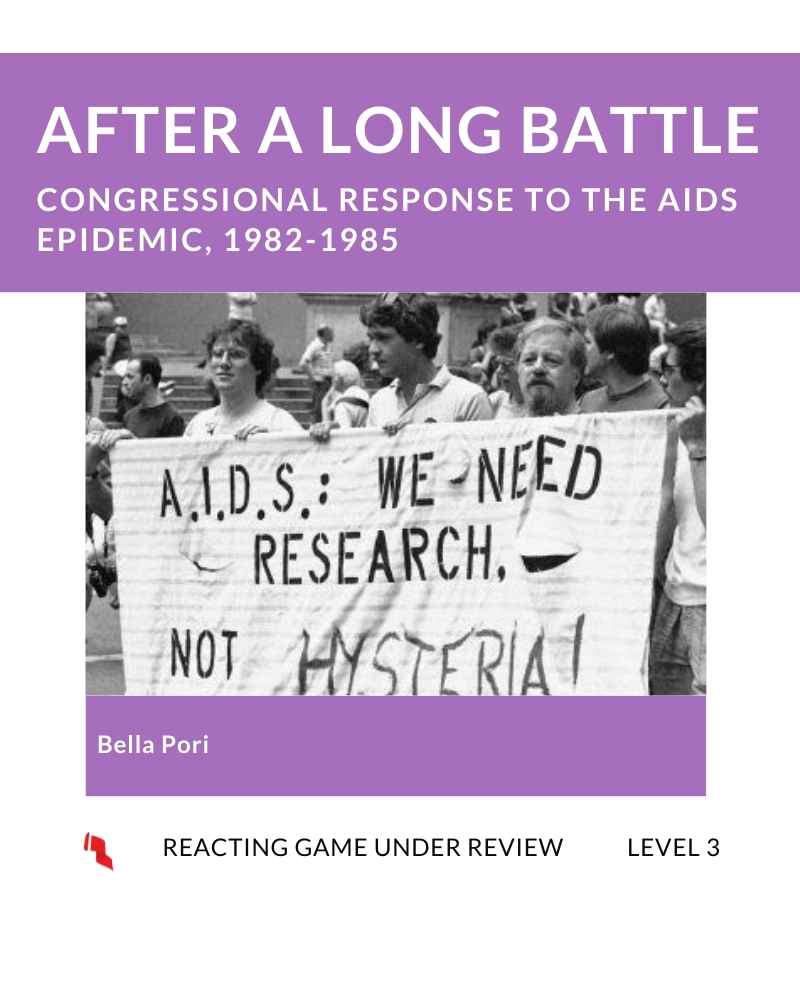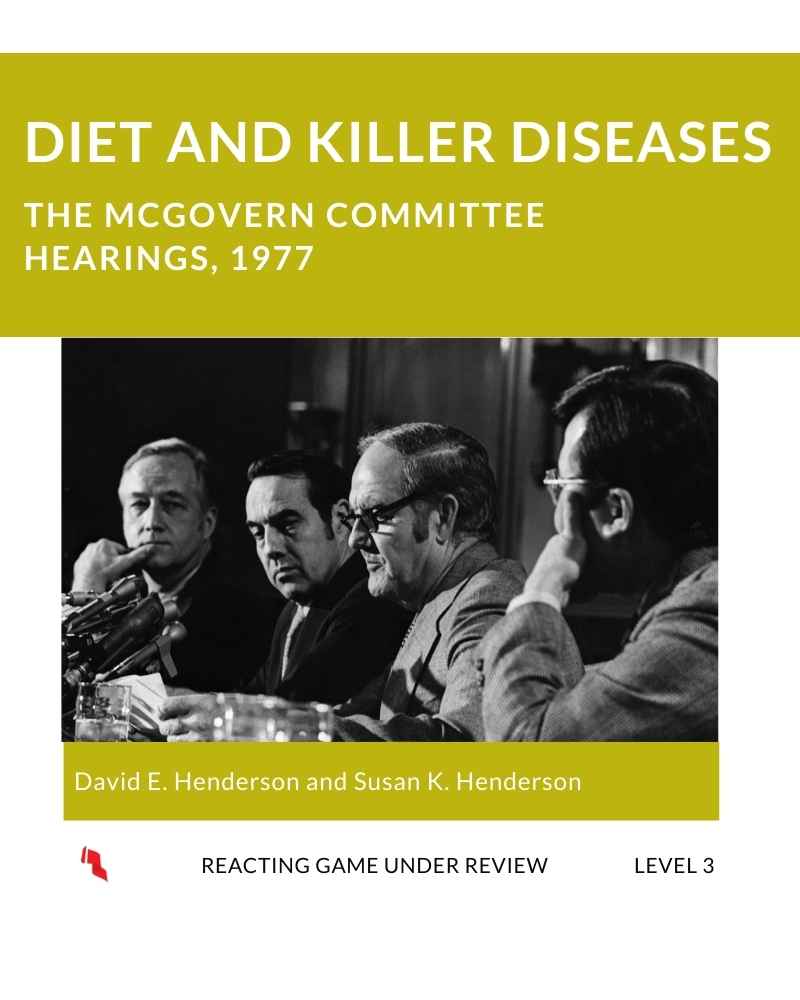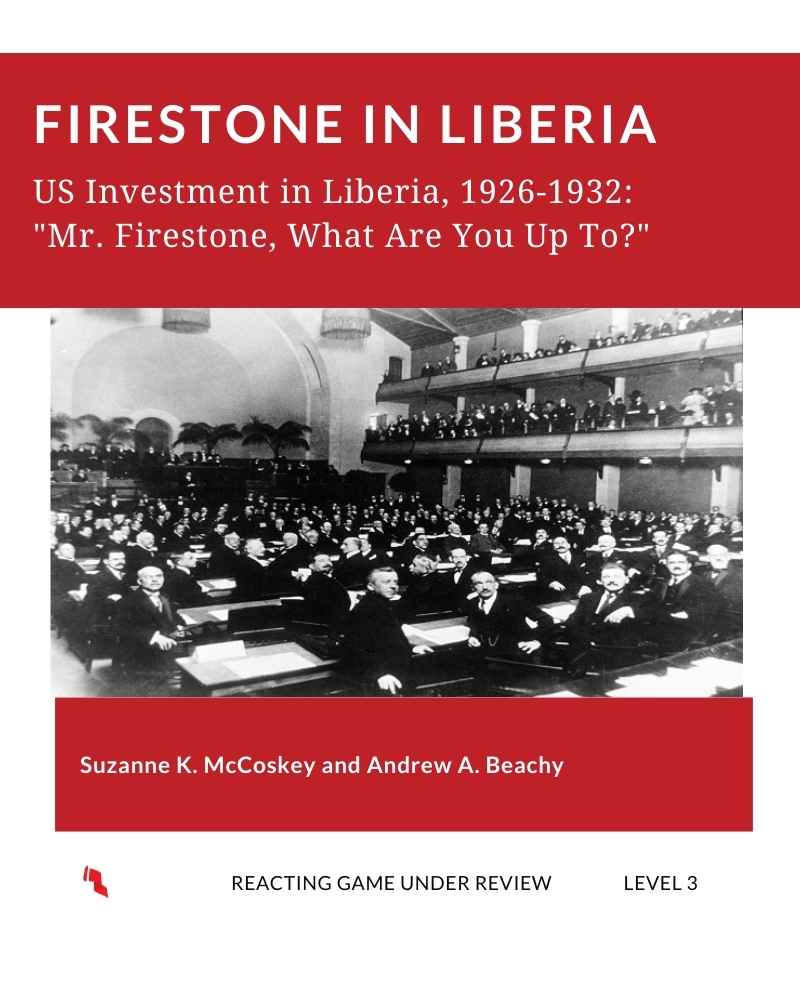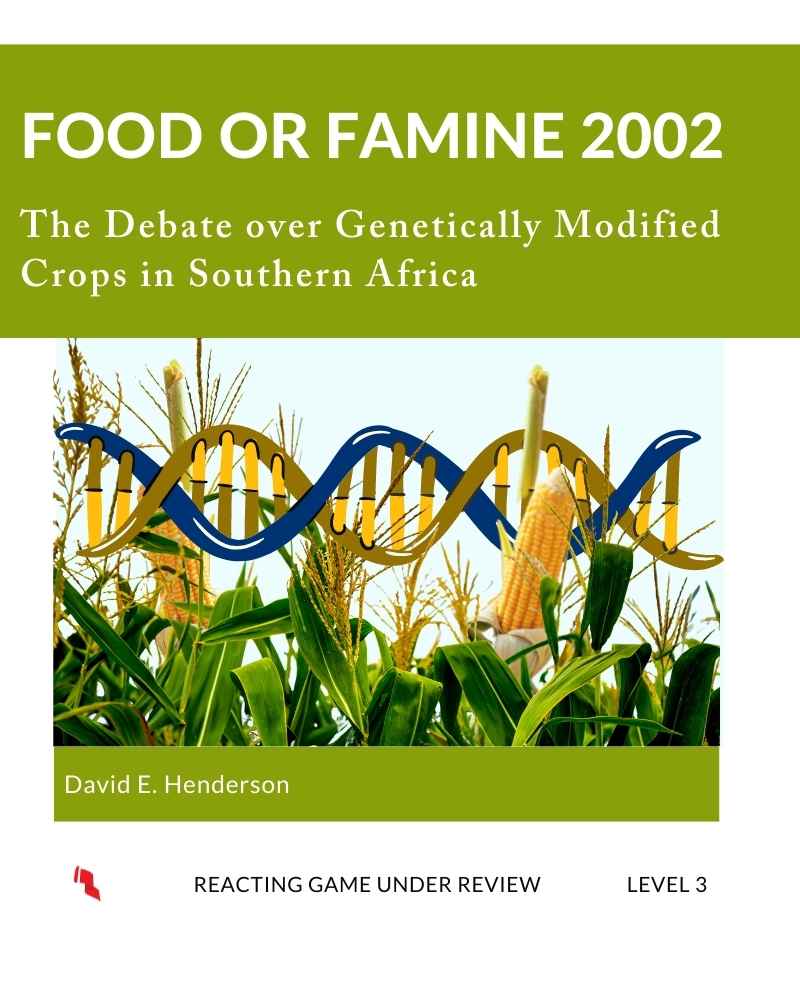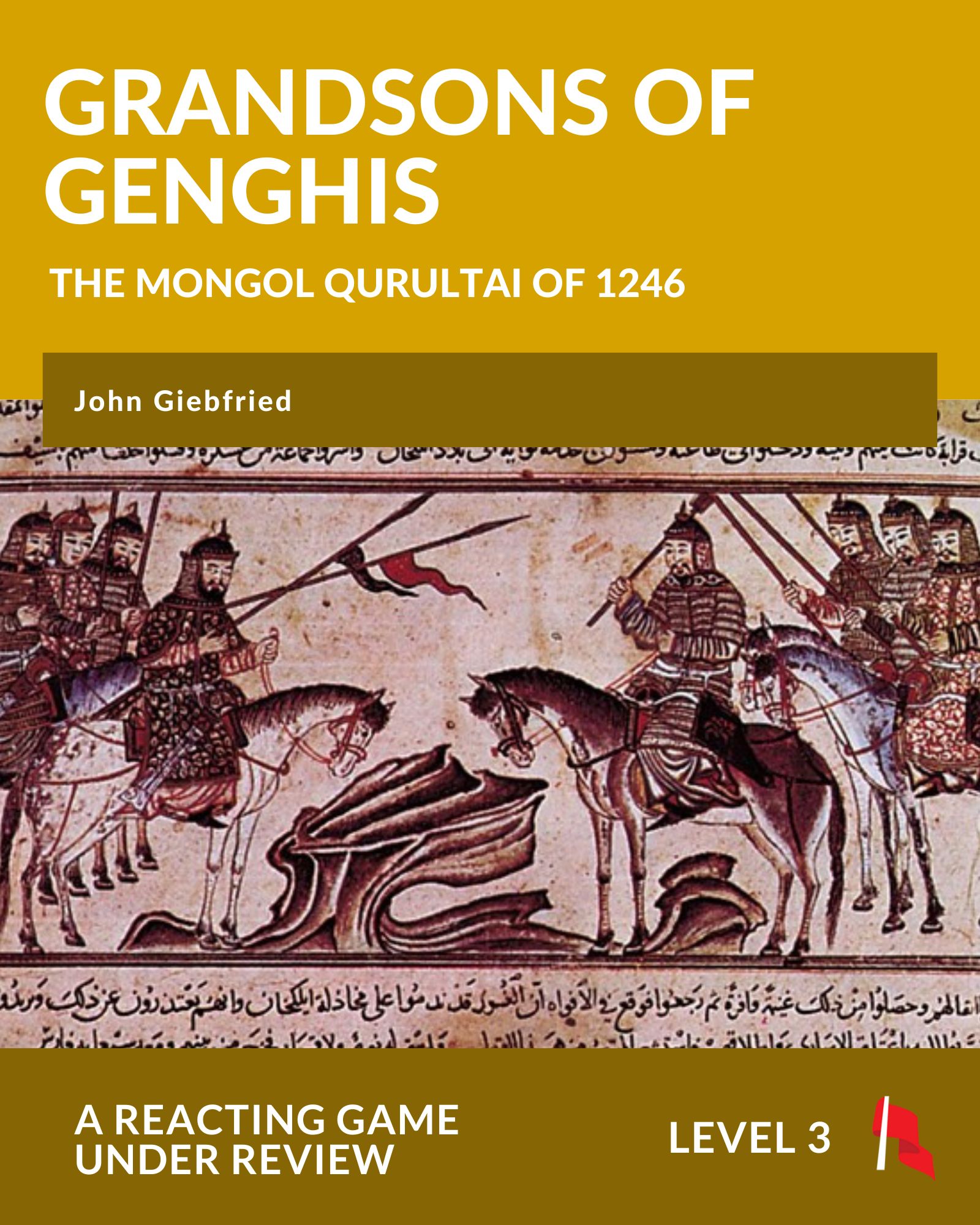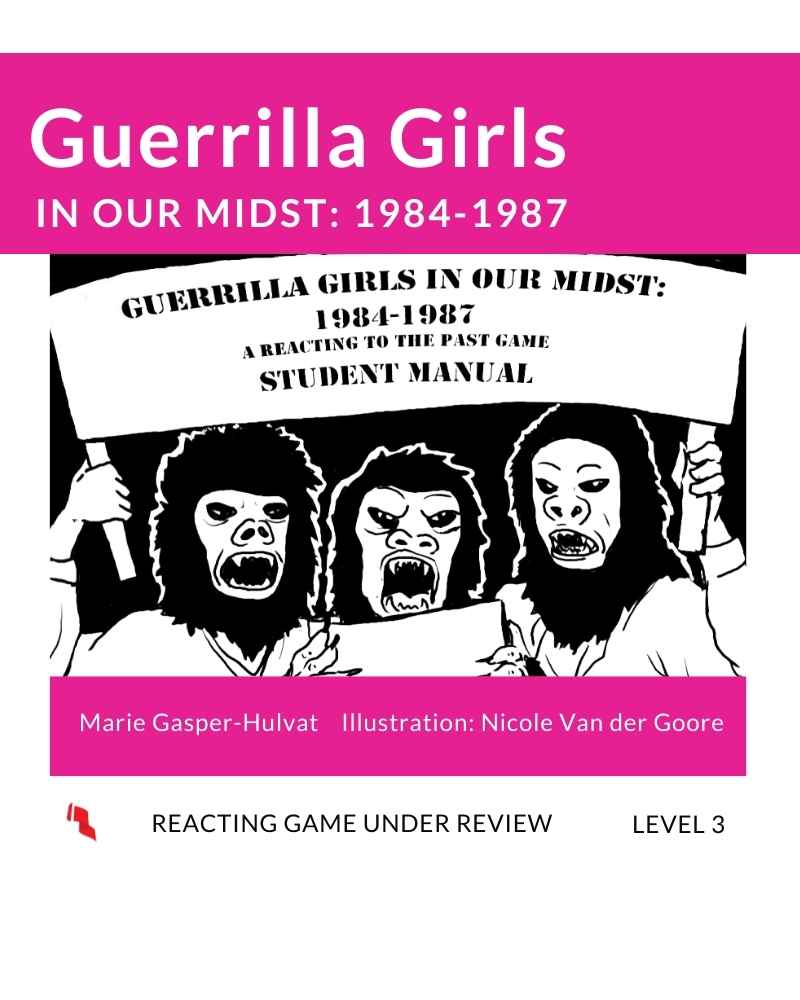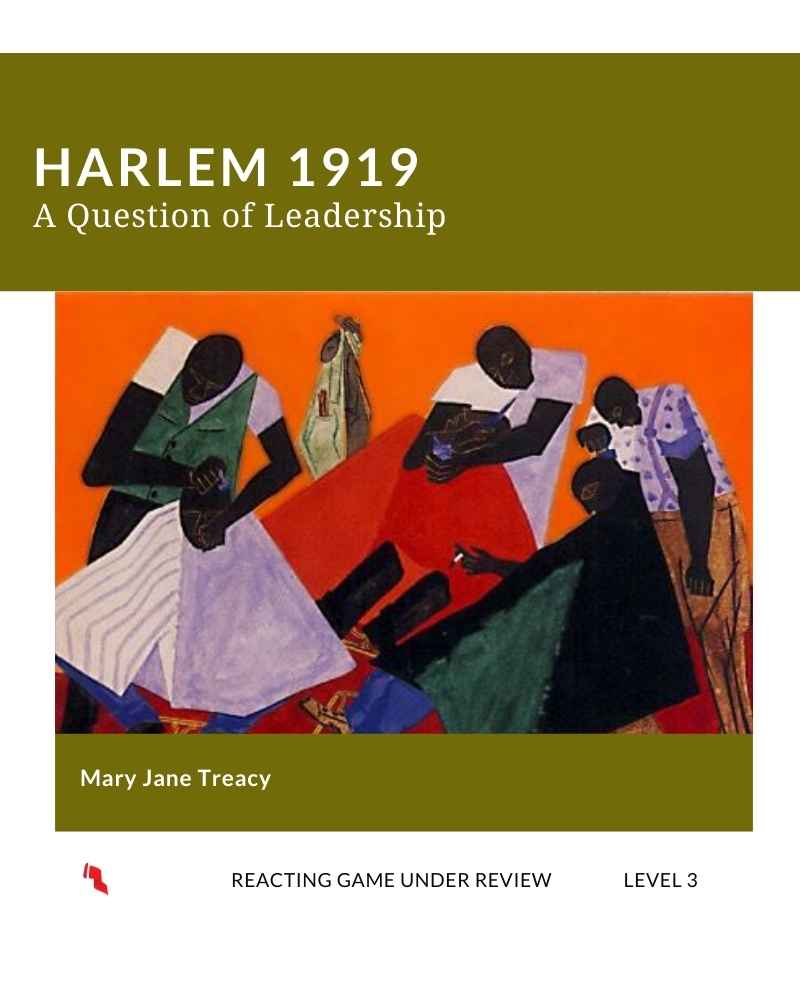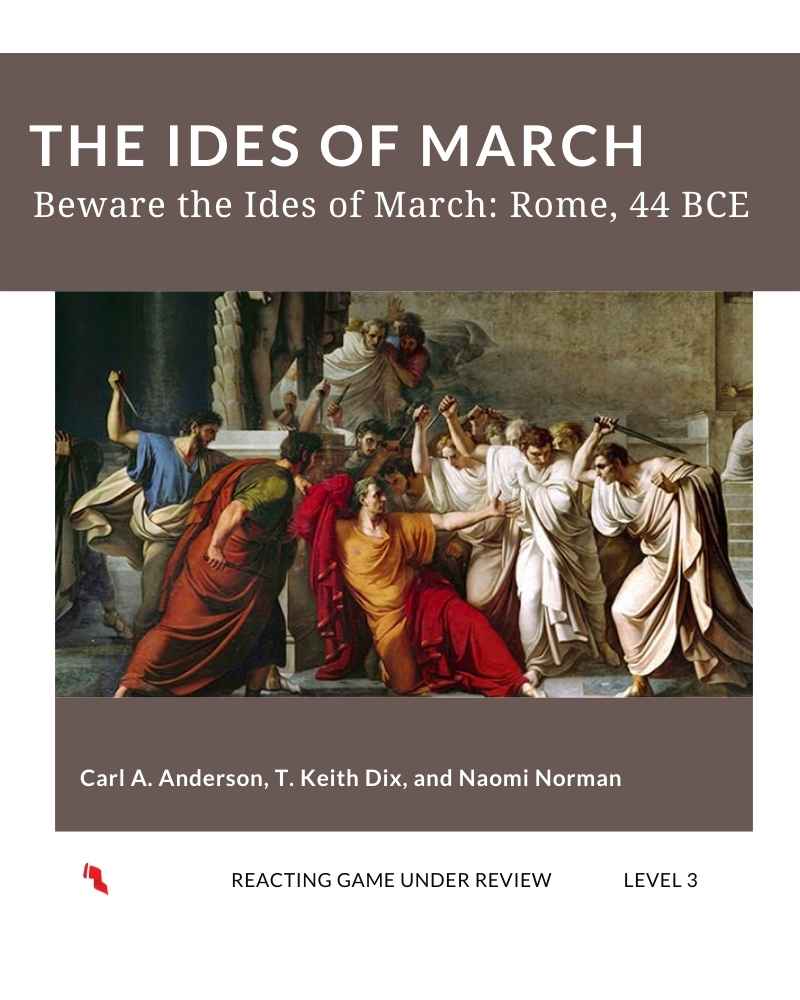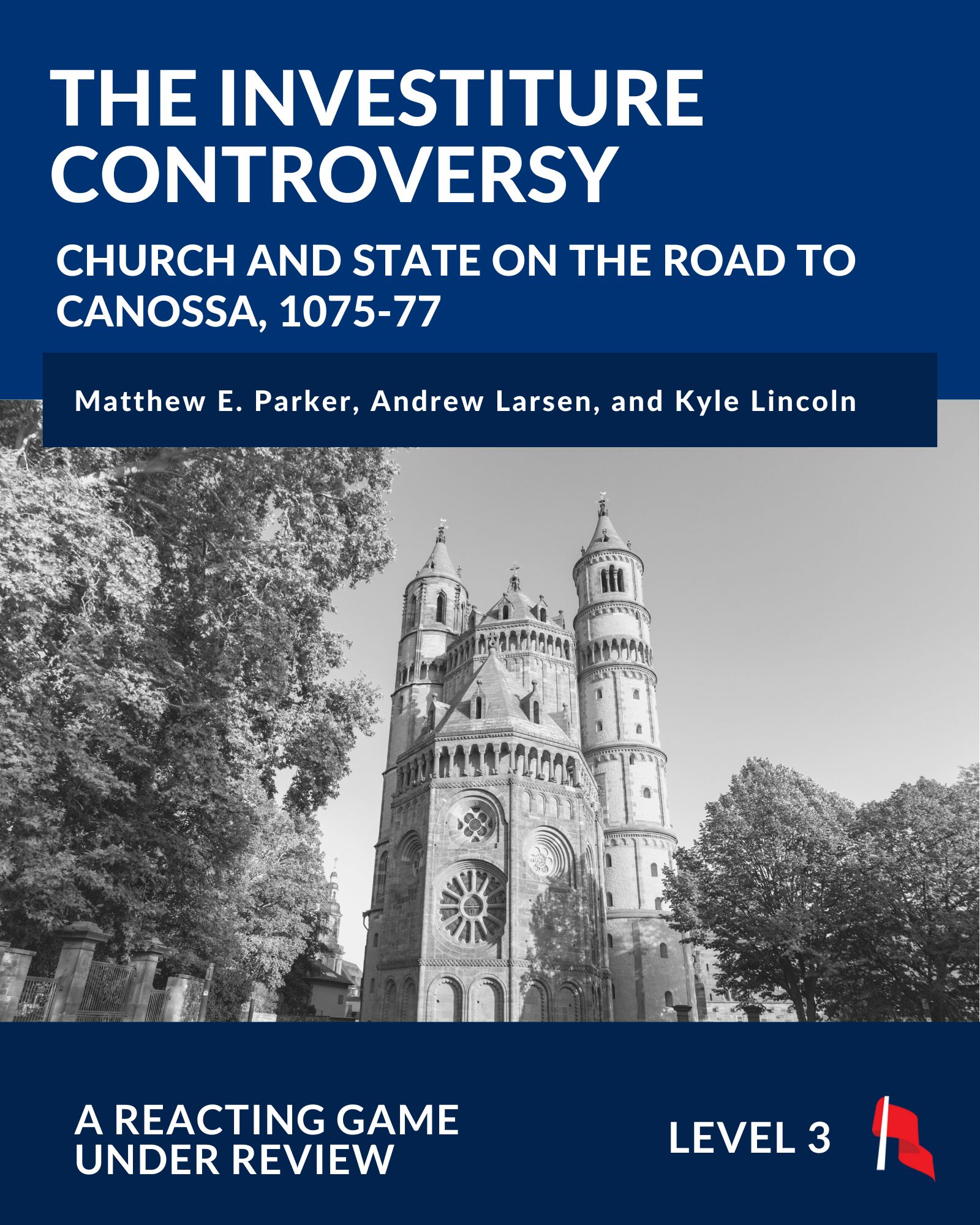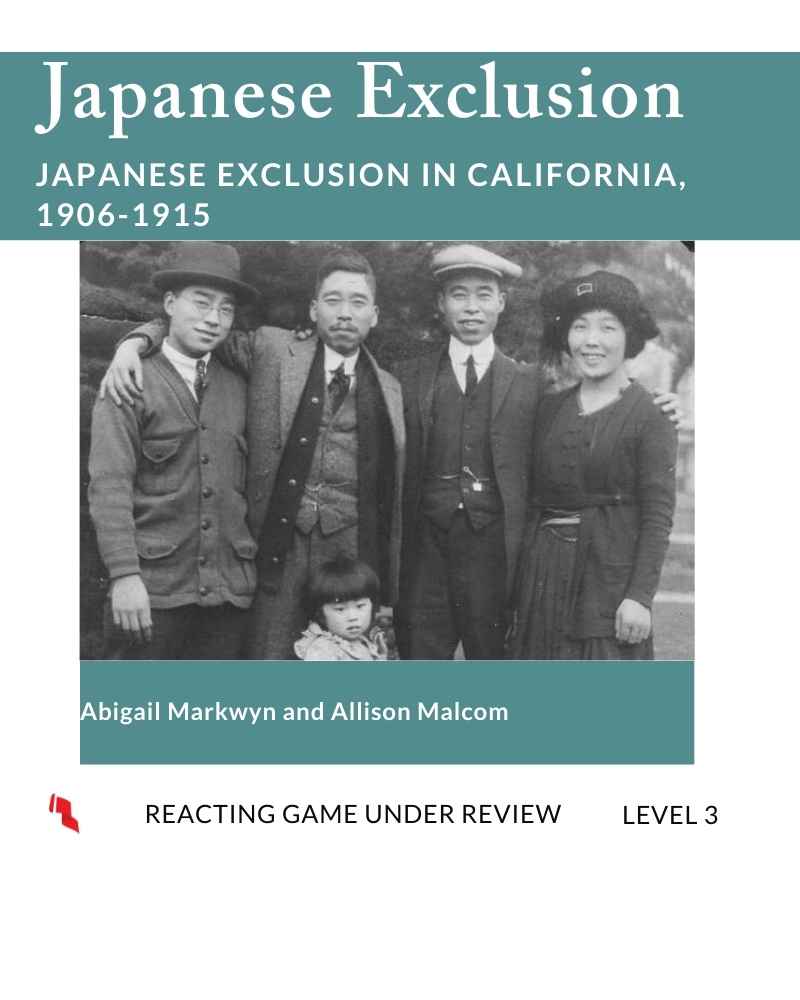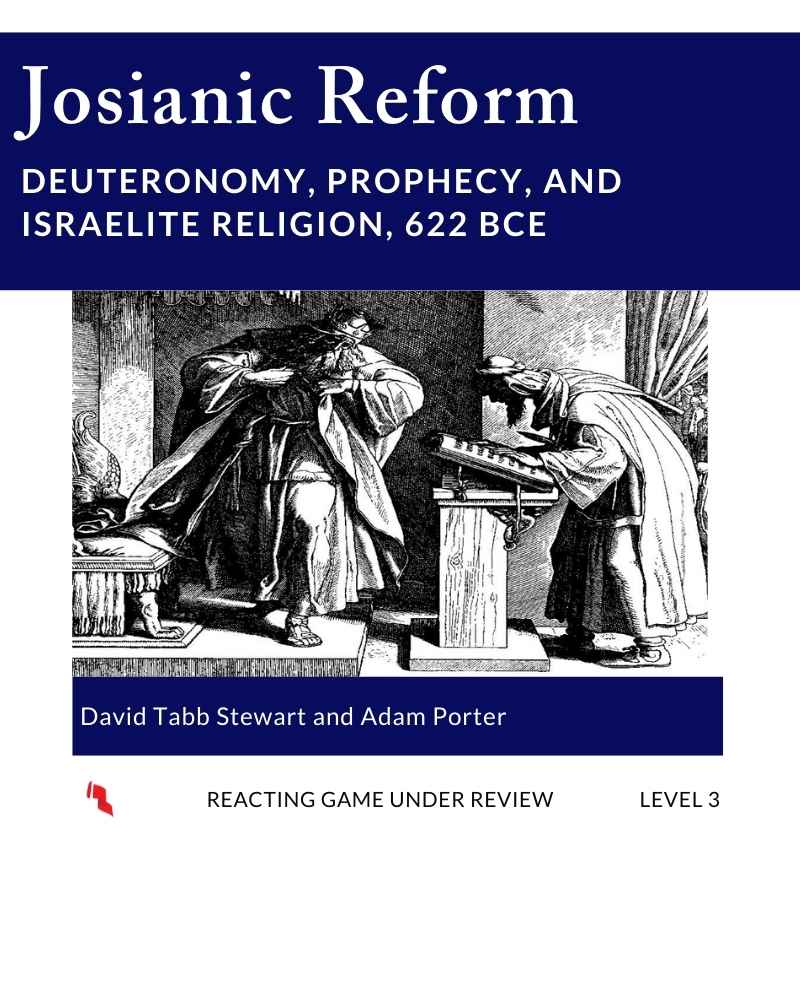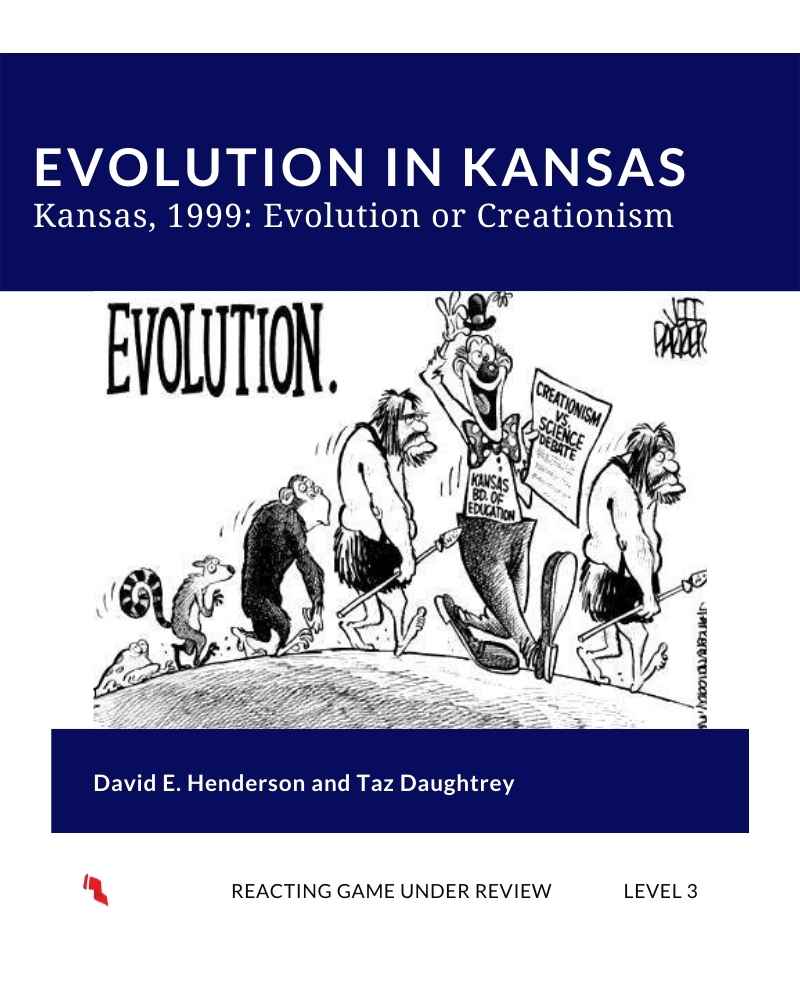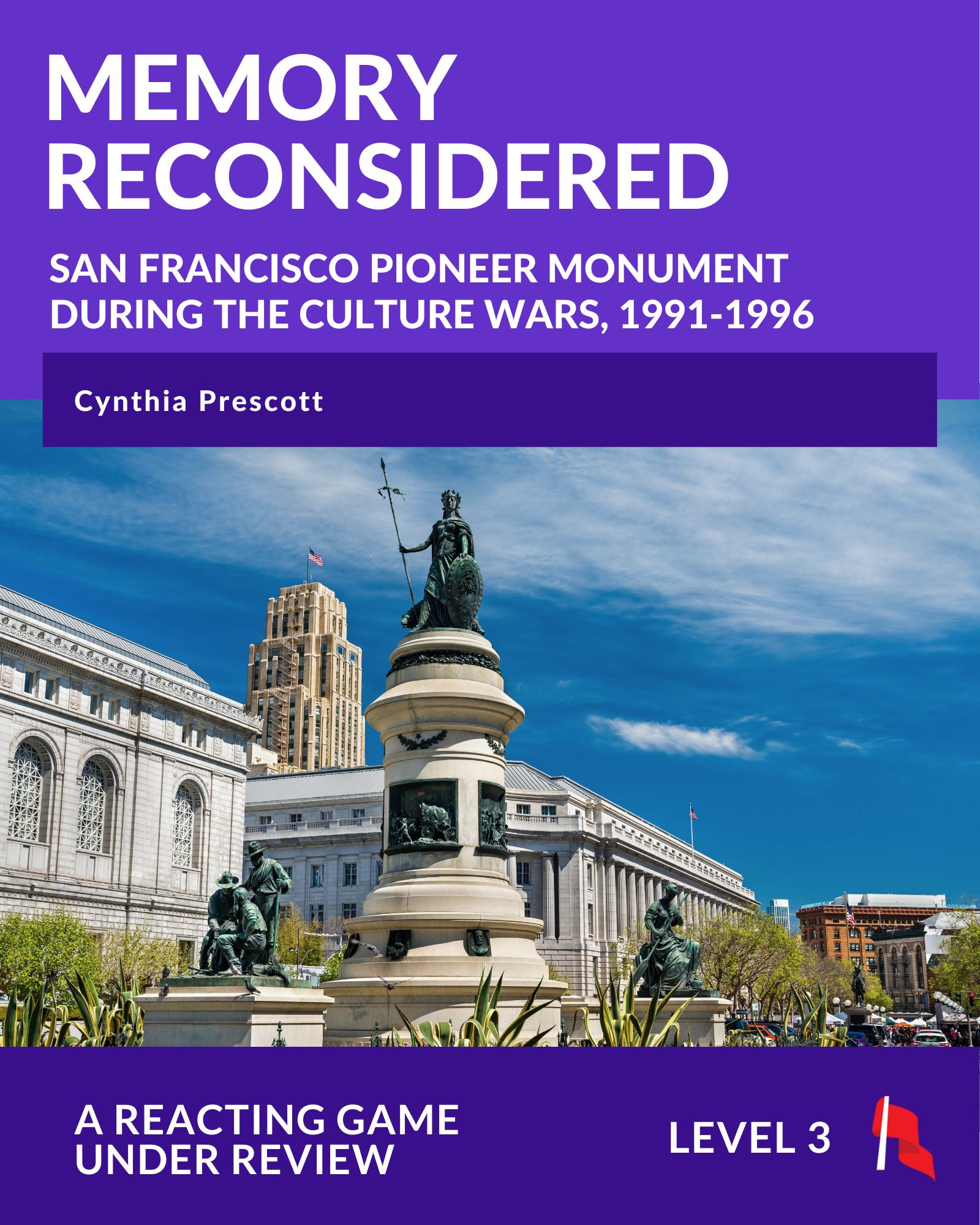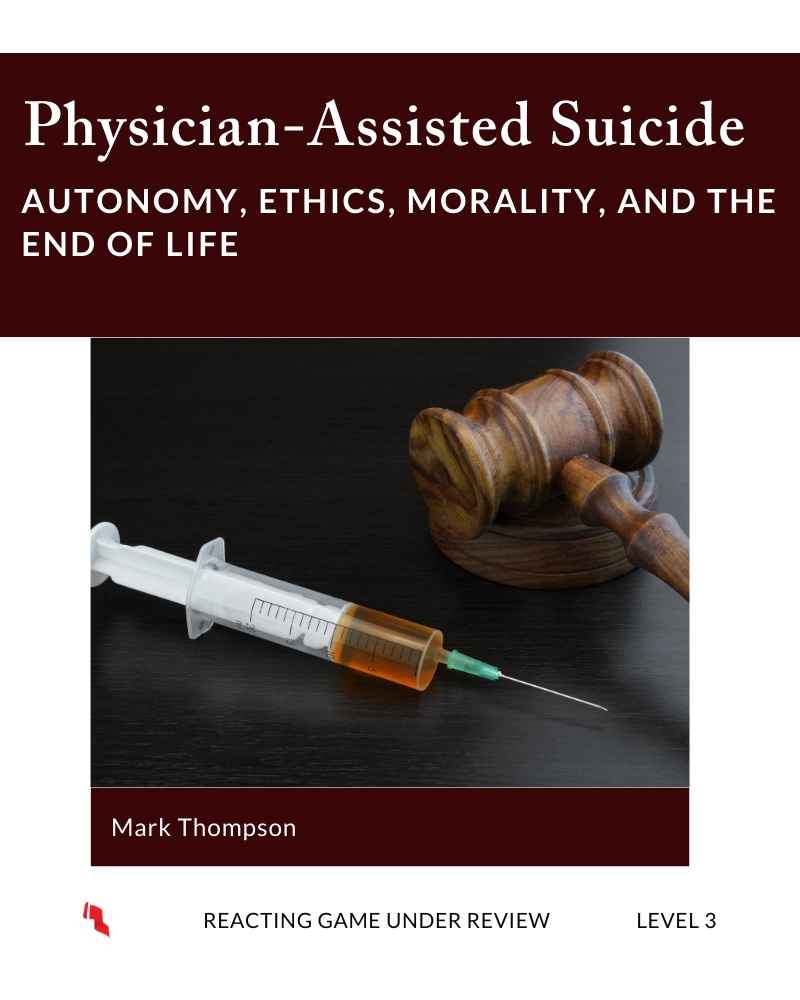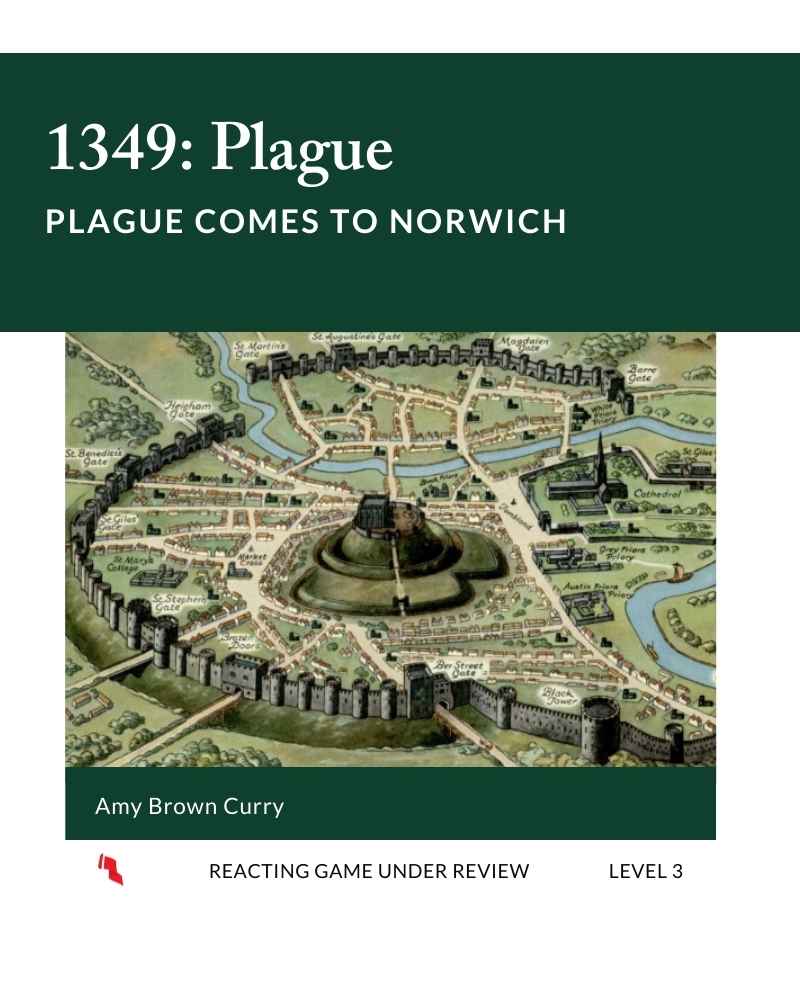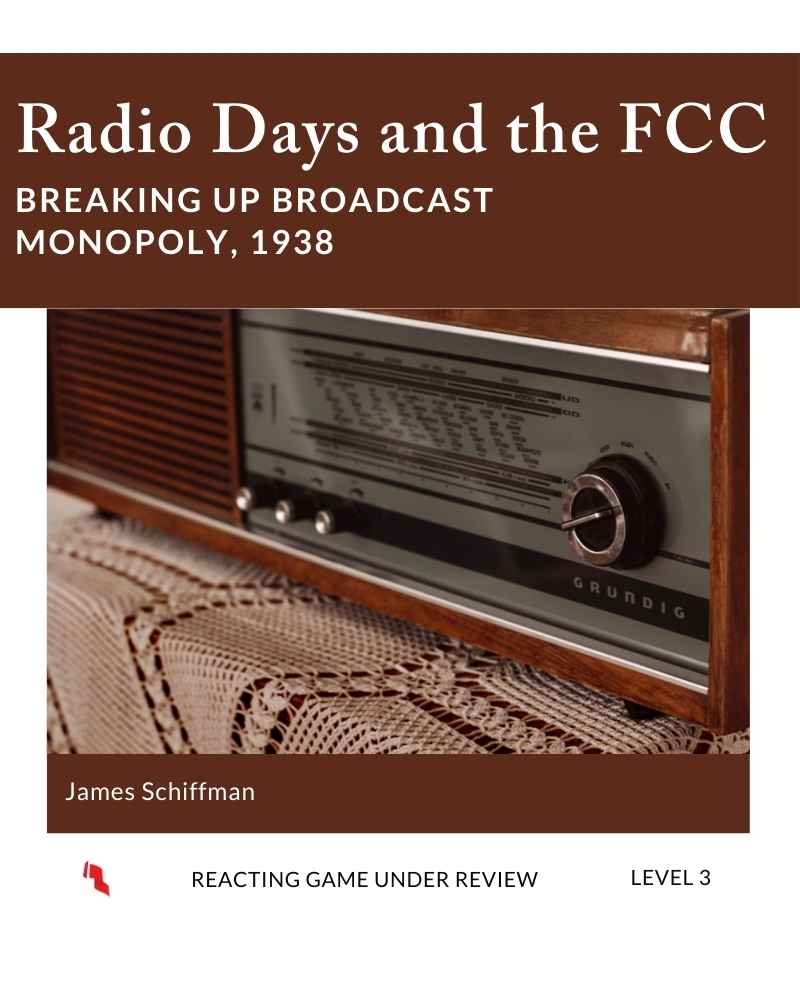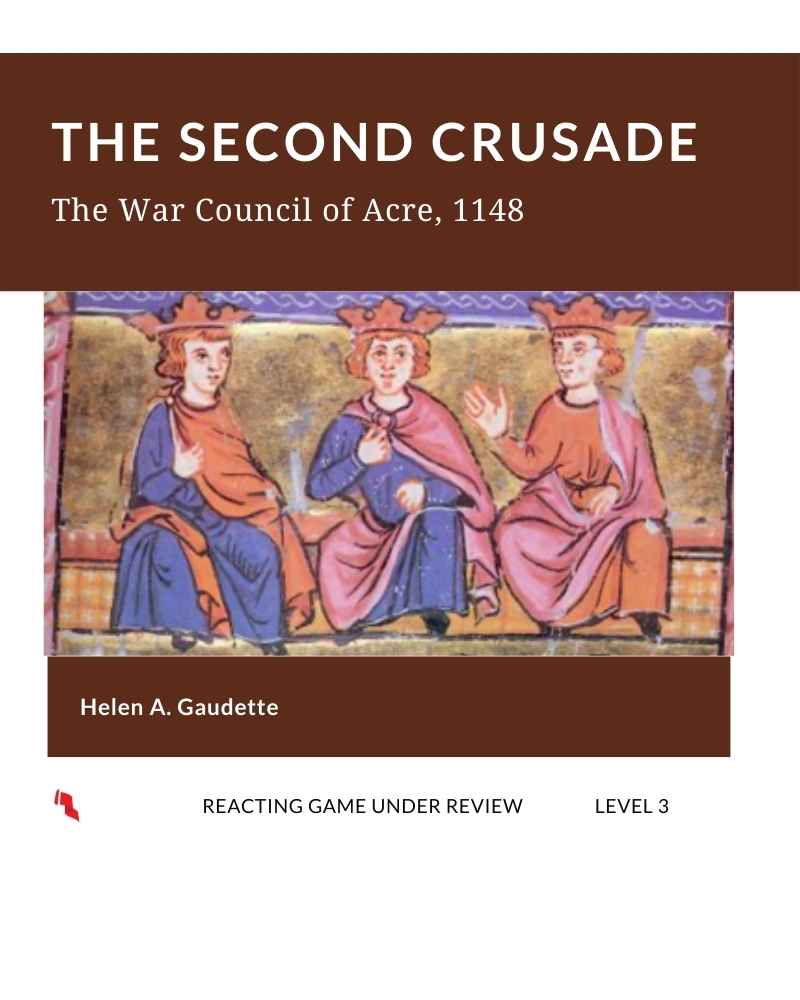|
Argentina, 1985: Making Memory Argentina is at a crossroads. A military dictatorship has ended, a democratically elected president has taken office, and the nation begins to address its violent past: repression, political violence, labor unrest, "disappeared" citizens. This game brings these national debates to a secondary school that asks its students to seek information, tell a story about what happened at the school, and determine a path forward. 6+ Sessions 28-33 Students 20th Century South America Level 4 Game (What's this Mean?) |
The Enlightenment in Crisis: Diderot's Encyclopedié in a Parisian Salon, 1750 The story of the Encyclopédie is one of epic struggle, with colorful characters both famous and obscure. Participants will have to immerse themselves in salon culture, figure out who potential allies are, do written and oral work toward victory objectives, and build toward making ultimate decisions about their relationship to the Enlightenment as a whole and the Encyclopédie in particular. 8-11 Sessions 11-33 Students 18th Century Europe Level 4 Game (What's this Mean?) |
Korea at the Crossroads of Civilizations: Confucianism, Westernization, and the 1894 Kabo Reforms Reform has swept through East Asia following the irruption of Western imperialism in the second half of the nineteenth century. Set in the Deliberative Council, a body established by the Korean court in the midst of the Sino-Japanese War to discuss and implement measures to restructure government, economy, society, and education. 6-16 Sessions 10-26 Students 19th Century Asia Level 4 Game (What's this Mean?) |
 Level 3
Level 3
Ashoka: Becoming the Dharma King Ashoka returned from his successful war against Kalinga, grieved at the great suffering and loss of life he had brought to the land. He was determined to become a better Buddhist and a king who ruled not through force, but through the Dharma (literally “law,” but it comes to mean “true teaching” and “order of the universe”). As members of the Council, students represent the major traditions operative at Ashoka’s time: Brahmin Traditionalists, Jains, Ajivikas, and Buddhists who must advise the King on the policies that will help him become the Dharma-king. 7-9 Sessions 6-47 Students 3rd Century BCE Asia Level 3 Game (What's this Mean?) |
Charles Babbage, Ada Lovelace, and the Dawn of Computing Should Charles Babbage be awarded funds from the British government for the development of his Difference Engine and/or Analytical Engine? Intellectual collisions concern the conflict between imagination and reason, the nature of science and scientists, and whether and to what degree science and engineering projects should be subsidized by the government. 8-12 Sessions 14-25 Students 19th Century Europe Level 3 Game (What's this Mean?) |
Politics, Religion, and the Birth of the Public Sphere: England, 1685-1688 This game places students in the turbulent political and religious debates of late seventeenth century England, debates that were fundamental in shaping modern civil society. Concludes by simulating the so-called “Glorious Revolution” of late 1688, resolving important player actions throughout the game. 3-6 Sessions 12-35 Students 17th Century Europe Level 3 Game (What's this Mean?) |
| Christine de Pizan and the Querelle des Femmes, 1413 Christine de Pizan and the Querelle des Femmes examines the power, authority, and roles of women in the 1413 French court. Debates over misogyny in literature, legal theory, and political roles demonstrate the centrality of both women and gender to major issues in late medieval France. 2-12 Sessions 12-31 Students 15th Century Europe Level 3 Game (What's this Mean?) |
CONGRESS OF VIENNA Europe’s leaders gather in Vienna to restore Europe after a quarter century of revolution, war and conquest from the French Revolution to the defeat of Napoleon Bonaparte. They must wrestle with competing ideals of legitimacy, nationalism and the balance of power as they seek to restore a Europe shattered by Napoleon's conquests and create an enduring peace. |
After a Long Battle: Congressional Response to the AIDS Epidemic, 1982-1985 Asks players to put themselves in the shoes of those living at the height of the AIDS epidemic in America when next to nothing was known about the virus. By taking the roles of congressional representatives, government epidemiologists, doctors, researchers, gay activists, preachers, journalists, and citizens, students can understand the radical changes to society when a new disease caught the country unprepared. 6-11 Sessions 10-30 Students 20th Century North America Level 3 Game (What's this Mean?) |
Diet and Killer Diseases: The McGovern Committee Hearings, 1977 Many trace the origin of the low-fat diet craze to the Senate hearings of the McGovern Committee in 1977. This game examines the scientific evidence available in 1977 by expanding the hearings to include a larger range of voices than were invited to the actual hearing. Students will take the role of senators and the media while examining scientific evidence at the time linking dietary fat to health. 3-8 Sessions 6-36 Students 20th Century North America Level 3 Game (What's this Mean?) (STEM) |
Egypt 1920s: Feminism, Nationalism, and Islam Egypt has gained limited independence from Great Britain and a new constitutional monarchy. But 18 months in, the new democratic mechanisms are already faltering. Furthermore, Egypt is not fully independence. Students are politicians, industrialists, feminists, reformers, and religious leaders debating whether different proposed reforms are making Egypt modern or western. 8-10 Sessions 18-33 Students 20th Century SW Asia Level 3 Game (What's this Mean?) |
Progressivism at High Tide: The Election of 1912 Places students in the midst of one of the most fascinating political events of U.S. history--the presidential election of 1912, in which all of the candidates described themselves as "progressive." But what did it mean to be "progressive"? Students must question the basic principles of progressivism, and how could one apply those principles into specific policy questions. 8 Sessions 13-31 Students 20th Century North America Level 3 Game (What's this Mean?) |
U.S. Investment in Liberia, 1926-1932: "Mr. Firestone, What Are You Up To?" The ambitious investment by the Firestone Tire & Rubber Company in the West African country of Liberia is at a crossroads. Recent reports of slave labor in Liberia have come to the attention of the League of Nations and US State Department and the international attention given to these reports could have a grave impact on the future of the Company. The League of Nations has investigated the labor issues in Liberia and has called witnesses to London to provide their testimony: should the future of this troubled country include a role for the US company or is it time for Firestone to leave Liberia? 6-9 Sessions 14-30 Students 20th Century Africa Level 3 Game (What's this Mean?) |
Food or Famine, 2002: The Debate over Genetically Modified Crops in Southern Africa Set in an African conference at which nations facing famine are confronted with the choice between accepting genetically modified (GM) corn from the USA and the risk that they will not be able to export their agricultural products to the EU as a result or allowing people to starve. Students learn about GM foods and the controversies over their safety, both for health reasons and ecological reasons. 4-5 Sessions 6-29 Students 21st Century Africa, International Level 3 Game (What's this Mean?) (STEM) |
Philosophy, Politics, and Diplomacy in China, 223 BCE This game takes place at the end of the Warring States period in China, at a time when Qin state has already absorbed two of the previously existent seven states, and is threatening the remaining four states of Chu, Qi, Zhao and Yan. The simulation is structured as a debate amongst the four most influential philosophical legacies of the Warring States era: Confucianism, Naturalism, Legalism, and Mohism. 7 Sessions 13-35 Students 3rd Century BCE Asia Level 3 Game (What's this Mean?) |
The Mongol Qurultai of 1246 This game brings together the rival members of the Mongol royal family and representatives from across Eurasia to debate the legacy of Genghis Khan, appoint a successor to the Mongol throne, promote interreligious dialogue between Islam, Buddhism and Christianity, and plot where the vast Mongol Empire should expand next. 3-6 Sessions 15-40 Students 13th Century Asia, Europe Level 3 Game (What's this Mean?) |
Guerrilla Girls in our Midst: 1984-1987 The booming 1980s New York City art scene saw the emergence of a feminist art collective known as the Guerrilla Girls who exposed contemporary art world sexism and racism. Major questions for debate range from whether the art world is sexist and should embrace affirmative action to whether artistic quality even matters, who gets to determine such quality, and whether one can legitimately tie quality to sincerity of expression within a postmodern world. 8-9 Sessions 10-34+ Students 20th Century North America Level 3 Game (What's this Mean?) |
Harlem, 1919: A Question of Leadership EDDIE's is a fictional barbershop where men of all social stations converge to discuss the news of the day. EDDIE’s barbers vie to persuade the clients that their favored leader’s point of view will take the community into the next decade. Although the barbers support W.E.B. Du Bois, Marcus Garvey, and A. Philip Randolph, other ideas –both traditional and radically new—will emerge as the game unfolds. 6-7 Sessions 20-25 Students 20th Century North America Level 3 Game (What's this Mean?) |
HANDS OFF AFRICA! How will European colonialism end and what shape will independent Africa take? Should the nation-state remain the paramount political unit for independent African states, as it has been for the European powers, or is something different desirable or even possible? If the colonizers refuse to cede power, what strategies and tactics should Africans adopt to win their independence? Is violence ever justified? At the All African People's Conference you will engage with these and other questions about the future shape of the continent and political and economic forms for African peoples. |
Beware the Ides of March: Rome, 44 BCE Julius Caesar has been assassinated and it's up to the Senate to push Rome forward. Probable debates in the Senate fall under four general headings: public order, Caesar's powers, foreign policy, and government. By grappling with the complex issues of Roman power politics at a moment of crisis, students gain perspective on the dynamics of late Republican Roman history and can evaluate Rome's subsequent evolution. 5-6 Sessions 12-24 Students 1st Century BCE Europe Level 3 Game (What's this Mean?) |
Church and State on the Road to Canossa, 1075-77 Religious and secular powers clash as Western Christendom must decide who holds ultimate authority, the Pope or Holy Roman Emperor. Students will explore the intricate workings of the medieval church and how it interacted with the state in a tumultuous time. 6-7 Sessions 14-38 Students 11th Century Europe Level 3 Game (What's this Mean?) |
Japanese Exclusion in California, 1906-1915 In the wake of the 1906 earthquake, a progressively-minded San Francisco School Board votes to remove Japanese schoolchildren from their regular schools in order to send them to the segregated “Oriental School” in Chinatown. This event occurs against a backdrop of violent attacks on Japanese people in California. 6-12 Sessions 10-42 Students 20th Century North America Level 3 Game (What's this Mean?) |
The Josianic Reform: Deuteronomy, Prophecy, and Israelite Religion Set just before a monotheistic reform of Israelite religion (622 BCE), the game takes up several tensions within the Bible: “the one versus the many gods,” the nature of sacred text and prophecy, and the conflict of ideas within the Bible itself. The Documentary hypothesis—the literary-historical notion that the Torah grew out of a set of traditions, documentary “sources,” and editorial activity—takes seriously the competing idea sets within the Bible. 6-12 Sessions 10-42 Students 20th Century North America Level 3 Game (What's this Mean?) |
Kansas, 1999: Evolution or Creationism Christian Conservatives on the Kansas Board of Education have deleted macroevolution and Big Bang cosmology from the state science curriculum. The game centers on the election of a new Board of Education which must, for legal reasons, revisit the decision. Questions are raised about the role of religion in American society, the power of religious fundamentalism in the modern world, and the nature of science. 7-9 Sessions 12-30+ Students 20th Century North America Level 3 Game (What's this Mean?) (STEM) |
Memory Reconsidered: San Francisco Pioneer Monument During the Culture Wars, 1991-1996 Amid the 1990s Culture Wars, players debate whether to preserve, relocate, reinterpret, or remove a controversial public monument. Debates are centered around the connection between memory and identity and the impact of history on public issues. 4-8 Sessions 12-31 Students 20th Century North America Level 3 Game (What's this Mean?) |
OKLAHOMA REVOLUTION In the early 20th century, three things were true about Oklahoma: it had the highest American Indian population in the nation; it was the most socialist state in the country; and (after 1917) it had the highest Ku Klux Klan membership per capita. In the 1920s, the so-called second Klan was a major force throughout the United States, and it was much more catholic in its hatred than its Reconstruction predecessor. In the 46th state, things came to a head in 1922 when socialists elected their candidate for governor, determined to break the Klan’s hold on the state. Will they succeed, or will the racists triumph? 6 Sessions 14-28 Students 20th Century North America Level 3 Game (What's this Mean?) |
Physician-Assisted Suicide: Autonomy, Ethics, Morality, and the End of Life The California legislature, governor, and courts consider approval of the End of Life Option Act (EOLA) to legalize physician-assisted suicide. Players engage in the forty-year debate from 1976-2016 springing from the case of Karen Ann Quinlan, which raised questions about whether there is a right-to-die, the roles of family and physicians, and how the constitutional right to privacy is involved in end-of-life decisions 7-9 Sessions 14-30+ Students 20th Century North America Level 3 Game (What's this Mean?) |
1349: Plague Comes to Norwich It's January of 1349, and the bustling city of Norwich faces the rising threat of plague. Members of the community, including merchants, clergy, tradesmen, medical men, and bailiffs, must decide how best to respond to uncertain and rapidly changing circumstances. Should the city impose a quarantine? How can one balance the need for health measures and economic interests? What is the role of religion in protecting a community? You might win an argument, but will that save your life? 5-8 Sessions 12-26 Students 14th Century Europe Level 2 Game (What's this Mean?) |
Radical Reconstruction in New Orleans, 1868-1876 At the end of the Civil War, the Thirteenth Amendment ended slavery, but this was not the end of conflict. As the largest city in the South, New Orleans was home to thousands of recently-enslaved Freedpeople as well as French-speaking Black Creoles, white unionists, German immigrants, and Yankee carpetbaggers. This game examines the ways in which these groups interacted with one another and contended with the myriad challenges of the Reconstruction era. 6-7 Sessions 11-30 Students 19th Century North America |
Radio Days and the FCC: Breaking up Broadcast Monopoly The Federal Communications Commission is holding hearings on what to do about the perceived monopoly power that the major radio networks – NBC and CBS – exercise over their affiliated stations. Game sessions involve witnesses taking testimony on a series of six questions before the Commission and culminates in a final, decisive vote that will decide the future of the radio industry. 5-13 Sessions 10-28 Students 20th Century North America Level 3 Game (What's this Mean?) |
The Second Crusade: The War Council of Acre, 1148 Takes place at the War Council of Acre in 1148, as the Pope has called for a second crusade. The council must debate the idea of “crusading,” the justifications for holy war, who will lead it, and how it will be conducted. Players become the monarchs, barons, and religious authorities present at the council. They are informed by the New Testament and the Qur’an, as well as the writers who described it. At the end, players will find out if their crusade was a success! 7-9 Sessions 15-30 Students 12th Century Europe, SW Asia Level 3 Game (What's this Mean?) |
Peacemaking, 1919: The Peace Conference at Versailles Places students in the complicated and politically fraught peace conference that will bring an end to the Great War. Students represent nations as they seek to bring about peace not only for the present, but also the future. For this game, students work primarily in topical subcommittees charged with recommending course of action to the Council of Five. The result will be a treaty by many hands, many visions, and many competing interests. 7-9 Sessions 10-28 Students 20th Century Europe, International Level 3 Game (What's this Mean?) |
A Different Kind of War: The United States, The Cold War, and Vietnam, 1963-65 The game examines the violent and sometimes brutal interactions between communist efforts to liberate the nations of the “Third World” from colonialism, American fears about Communist aggression, the resulting US strategy of containment, and the volatile situation in Southeast Asia during the mid-1960s. 5-9 Sessions 25-30 Students 20th Century North America Level 3 Game (What's this Mean?) |
A "Virtuous Woman"? The Abolition of Sati in India 1829 Calcutta, 1829, is the prosperous and populous capital of Bengal, the epicenter of British rule in India. You have gathered at the British Governor-General’s residence in Calcutta, where Governor-General Bentinck has summoned you to address an increasing contentious issue in British India: sati, the immolation of a widow on her husband’s funeral pyre. In the 1820s, the practice of sati has come under increasingly under attack: from liberal British reformers, Christian missionaries, and upper-caste Hindu reformers. But banning sati, some British East India Company administrators fear, will antagonize the Hindu population, destabilize British control over Bengal, and thus threaten profits. Players must navigate questions of religious authority and tradition, cultural autonomy, and colonial control as they debate whether the British should abolish sati in Bengal. 5-9 Sessions 6-47 Students 19th Century Asia |
SECOND SPANISH REPUBLIC In May 1931, King Alfonso XIII fled Spain, and the Second Spanish Republic was declared. The game begins when the temporary Constituent Cortes meets to write a new, republican constitution. The game models the deliberations of the Spanish legislature as elected officials representing parties from across the political spectrum debate the direction of the new Spanish government. Topics include the role of the Catholic Church in society, national minorities, land reform, and the permissibility of political violence. Players will explore the ideologies and tactics of the several factions in the Republic including Socialists, Catholics, Liberals, Communists, and Fascists.. 8-9 Sessions 18-28 Students 20th Century Europe |

